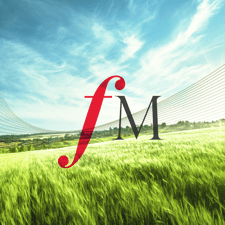The Full Works Concert - Thursday 8 January 2015, 8pm
Catherine Bott introduces Schubert's Unfinished Symphony and an unusual concerto for four horns by Schumann in tonight's concert.
Tonight's Concert opens with the overture to Prince Igor by Borodin. Despite spending some 18 years working on the opera, Prince Igor was still incomplete at the time of Borodin's death; Rimsky-Korsakov and Glazunov began the hugely unenviable task of sifting through Borodin's unfinished business. Rimsky-Korsakov later wrote in his memoirs, ‘Glazunov ... was to fill in all the gaps in Act III and write down from memory the Overture played so often by the composer, while I was to orchestrate, finish composing, and systematise all the rest that had been left ...’ All things considered, they did a wonderful job.
Soon after Mendelssohn's first visit to Britain, he headed off to Italy as part of the same European tour. The buoyant and optimistic mood with which his Symphony No.4 in A major - known as the 'Italian' - immediately begins bears all the hallmarks of a happy man, eager to make his mark on the world and express his travels through music.
Schumann's Konzertstuck for 4 Horns and Orchestra was composed during 1849, the composer's most prolific year, in which he produced more than 30 major works, as well as numerous songs and piano pieces. The Konzertstuck is among the most exuberant and joyful of Schumann's compositions. It opens with a vibrant fanfare for the four horns and the virtuosic demands Schumann makes on the players does not let up until the end of the first movement. The second movement is lyrical, sensual and song-like. It opens and closes with a duet for two horns, separated by a lush four-part chorale that shows off the richest sort of sound that a horn section can create.
Known to Austrians as the Unvollendete (‘Unfinished’), the Symphony no.8 by Schubert, might easily have been the Unbekannt (‘Unknown’) were it not for fate. A full 37 years after Schubert’s death, the world counted Schubert’s symphonies on just eight fingers, rather than nine. Then, in a case reminiscent of a rediscovered Picasso, a 76-year-old man, possibly in the belief that he was on his way out, came forward to a Viennese conductor with the astonishing news that he had a Schubert symphony. Well, part of one. Schubert had sent it to him, some 43 years earlier. Why had he not come forward before? Was it anything to do with the fact that the music was incomplete with evidence of pages simply having been ripped out? It is still as much of an enigma as anything Elgar ever came up with. Schubert had some six years of his life remaining after he started working on the piece, but he never completed it. One theory, still argued over today, is that the missing fourth movement is alive and well-known now as the Entr’acte from Schubert’s incidental music to the play Rosamunde. Who knows?
Alexander Borodin: Prince Igor – Overture
Valery Gergiev conducts the Kirov Orchestra
Felix Mendelssohn: Symphony No.4 in A major (‘Italian’)
Edward Gardner conducts the City of Birmingham Symphony Orchestra
Johann Sebastian Bach: Cello Sonata No.1 in G major
Cello: Mischa Maisky
Piano Martha Argerich
Robert Schumann: Konzerstuck for 4 Horns & Orchestra
Horns: Robert Bonnevie, Mark Robbins, David C. Knapp, Scott Wilson
Gerard Schwarz conducts the Seattle Symphony Orchestra
Franz Schubert: Symphony No.8 in B minor (‘Unfiinished’)
Giuseppe Sinopoli conducts the Philharmonia Orchestra











